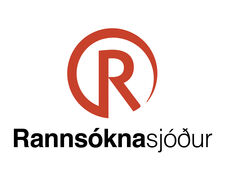Snemmtæk íhlutun dreifbýlisbarna með fjarþjónustu sérfræðinga: Eigindleg og megindleg greining á áhrifum fjarþjónustu sérfræðinga á framfarir og ánægju barns og fjölskyldu - verkefni lokið
Fréttatilkynning verkefnisstjóra
The purpose of the project was to develop and evaluate a behavioral parent training package via telecommunication for Icelandic caregivers of preschool children with autism that have limited access to evidence-based intervention and behavioral expertise.
Families of children with autism are more likely to encounter difficulties in accessing expert services including evidence-based early behavioral intervention, than families of children with other disabilities. Rural families experience even more barriers in accessing the expertise required for success.
A single-subject experimental design with precise behavioral measures was used to evaluate the effects of the training package on the caregivers’ teaching skills based on naturalistic behavior strategies and child socio-communicative skills. Qualitative information on the caregivers’ experience of the training and telehealth methods was also collected.
Results of the study showed that teaching caregivers via brief training in their homes and continuing training via telecommunication increased their teaching skills and had a positive effect on the children‘s socio-communicative skills. This increase was maintained over time and settings for most of the families. The caregivers thought the training was accessible and convenient and useful for their child and they all described changes in their children‘s behaviors, such as social attending, that were consistent with the study‘s experimental outcomes, as well as more frequent and improved contact with family members and friends.
Technical issues occurred during many of the telecommunication sessions with all families, such as poor video and sound quality which affected in part reliable data collection. Despite this, the mean inter-rater agreement was acceptable for all the data collected according to standards in single-subject experimental methodology. Low internet speed was one of the factors that likely affected the inter-rater agreement in addition to other factors related to the training setting and behaviors of the participants.
These results extend and confirm previous research on the effectiveness of teaching naturalistic strategies to caregivers with training beginning in the caregivers’ home and continued via telecommunication. Furthermore, they indicate that training via telecommunication is a promising alternative for rural families that have limited access to evidence-based intervention and expertise. However, some aspects of the training protocol and telehealth methods need fine-tuning and further evaluation.
Heiti
verkefnis: Snemmtæk íhlutun dreifbýlisbarna með fjarþjónustu sérfræðinga: Eigindleg og megindleg greining á áhrifum
fjarþjónustu sérfræðinga á framfarir og ánægju barns og fjölskyldu
Verkefnisstjóri:
Zuilma Gabríela Sigurðardóttir, Háskóla Íslands
Tegund styrks: Verkefnisstyrkur
Styrktímabil: 2013-2014
Fjárhæð styrks: 9,005 millj. kr. alls
Tilvísunarnúmer Rannís: 130322


